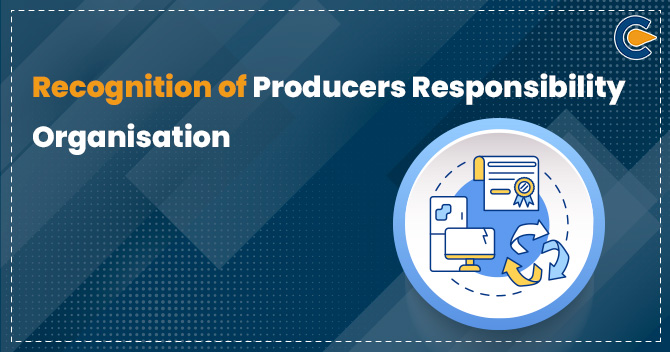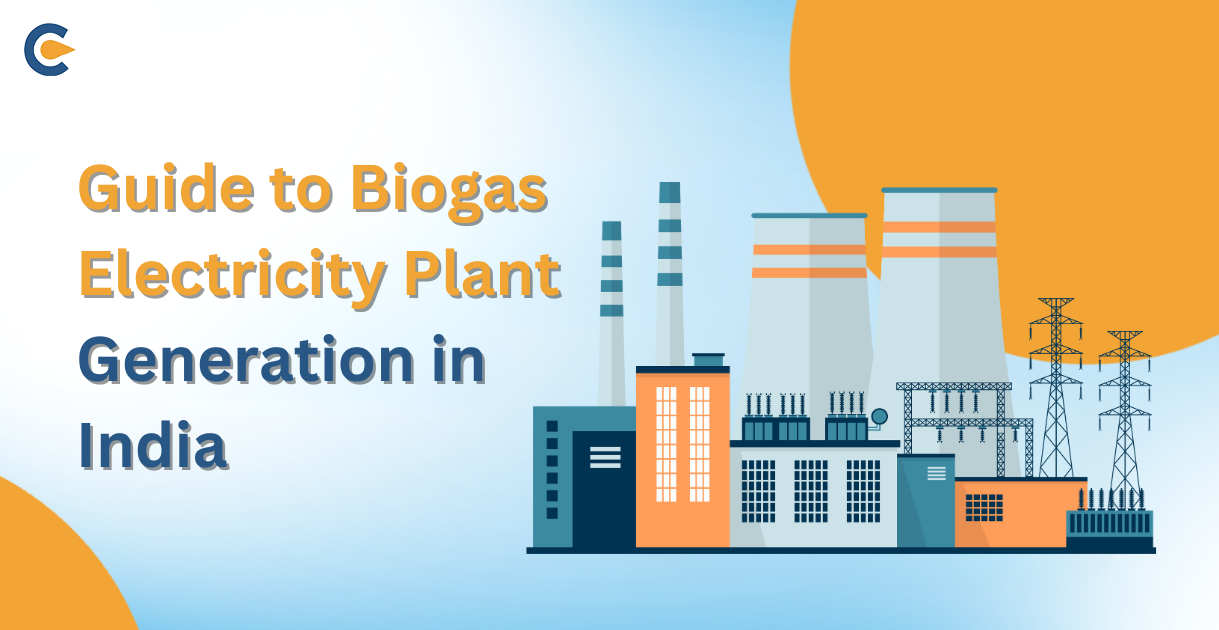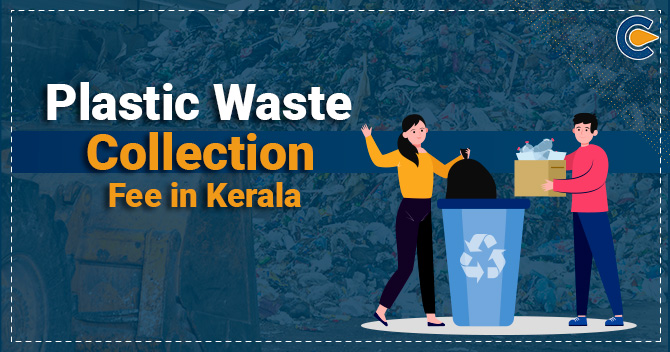With the increasing amount of waste accumulating in India, whether it be plastic waste or Electrical and Electronic Equipment (EEE) Waste, hour demands the collaborative efforts of the producers and the government, with the producers lifting the majority weight as part of being responsible for producing products which ultimately contributes to these waste. Therefore, in order to track producers’ liabilities, the extended producers’ responsibility was introduced under Plastic Waste (Management), 2016 and E-Waste (Management), 2016.
But due to the increasing pressure of the market on the producers to improve the quality and quantity of the products, it becomes very difficult for them to fulfil the target responsibility bestowed upon them. This has led to the emergence of a new innovative industry called PRO. They are delegated with responsibilities to fulfil EPR by the producers in response to financial aid under the Rules for which recognition of Producers Responsibility Organisation is one of the critical steps.
Extended Producers Responsibility: Explained
With the market’s shift to circular economy from linear economy clearing ways to new principles that promote the central idea of 3Rs, i.e. Reduce, Reuse and Recycle. The latest principle being Extended Producers’ Responsibility.
The introduction of Extended Producers’ Responsibility can be traced from the “Polluters pays principle”, where the producers are made liable to analyze the environmental impact of the products manufactured by them throughout their life cycle. Organisation of Economic Co-operation and Development defines extended producers’ responsibility as an environmental policy approach in which a producer’s responsibility for a product is extended to the post-consumer stage of a product’s life cycle, including its final disposal.
In India, EPR is defined under Plastic Waste (Management), 2016 and E-Waste (Management), 2016, as the responsibility of a producer for the environmentally sound management of the product until the end of its life.
With the introduction of EPR, a new enterprise, Producers’ Responsibility Organization, emerged that acts as a third party which helps producers to fulfil their obligations under the stipulated law.
Producers’ Responsibility Organization
As per The E-Waste (Management), Amendment Rules, 2018[1] Producers’ Responsibility Organization is defined under Rule 3(dd) “as a professional organization authorized or financed collectively or individually by producers, which can take responsibility for collection and channelization of e-waste generated from the ‘end-of-life’ of their products to ensure environmentally sound management of such e-waste.”
As per the given definition, Producers’ Responsibility Organizations are enterprises that are hired by the producers’/Manufacturers to fulfil their legal responsibility under the rules related to EPR while getting financial aid from the producers/ Manufacturers.
PRO can use a range of configurations to execute EPR:
- PRO as a private organization
- PRO as a non-profit corporation
- PRO as a government-run institution/agency
The producers’ responsibility organization model, on the other hand, does not affect the amount or proportion of plastic waste/e-waste required to satisfy the state pollution control board’s duties.
Role of Producers’ Responsibility Organization
- Design Extended Producers’ Responsibility Action plan as per the stipulated laws
- Register the designed Extended Producers’ Responsibility Action Plan with the concerned Authorities. (Central Pollution Control Board/State Pollution Control Board)
- Assisting the producers’ in achieving the set target for EPR.
- If required implementing the take-back/buyback policy
- Formulating and establishing waste collection mechanisms like the door to door collection.
- As per the stipulated guidelines set by Central Pollution Control Board establishing collection operation like a centre, go down or warehouse.
- Putting a Proper transportation system in place transferring the collected waste to recyclers.
- Overlook that recycling is taking place in an environmentally sustainable way.
- Assisting the producers in filing quarterly/Annual reports to the central pollution control board as per the provisions of the rules.
- At last conducting awareness campaigns and programs for Consumers, Bulk Consumers, and Producers’ for environmentally sound collection and transportation of the waste.
Requirements for Producers’ Responsibility Organization
Before registering or recognition of Producers’ Responsibility Organisation, the enterprise needs to make sure that they have a minimum of five years of experience in waste management with the published success stories for proper disposal and management of waste. They are also required to have TAN and GST & PAN numbers.
The other essential requirement for the PRO is to be capable enough to channel waste in order to meet the minimum requirement/target of the producers/manufacturers. Apart from this, the enterprise should also have sound infrastructures/organizational structures like collection facilities, storage facilities, transportation facilities and human resources.
The organization is also required to state its capacity in terms of handling waste which may include collection, storage as well as transportation of waste. Furthermore, it is also bound to clarify the capacity of the dismantler or recycler to whom they have made an agreement for dismantling or recycling of waste.
Producers’ Responsibility Organisation should also give details of the mechanism used by them for the collection of waste.
Recognition of Producers’ Responsibility Organization
Although mentioned under both Plastic Waste (Management) Rules and E-Waste (Management), the producers’ responsibility organization, the recognition and registration of PRO are only mandated under E-Waste rules after 2019 as per the notification published by Central Pollution Control Board.
The procedure for Recognition of Producers’ Responsibility Organisation, as stipulated by the rules, includes:-
- Filing of the application for registration to the Central Pollution Control Board. The application involves:-
- Company name and full address with contact details (Phone number, E-Mails etc.)
- Name of the Authorized person with the address and contact details
- Category of waste EEE (Electrical and Electronic Equipment) proposed to be handled
- Details of the dismantlers, recyclers or other channel partners
- The capacity for collection, storage and transportation of the waste, as well as the capacity of the channel partners
- PAN and GST numbers
- Details of the organizational structure
- Details of collection mechanism, website and toll-free numbers
- District/State Covered
- Success stories
- Any other information volunteered by PRO
- After the application is filled and submitted with the required documents, the central pollution control board carry out an inspection to assess the capacity and capabilities of the enterprise to handle e-waste collection, putting away, transportation, dismantling recycling, as well as its ability to carry out an awareness campaign to educate proper channelization of waste.
- After the inspection, the report is made for review based on which, if the central pollution control board is satisfied, grants the recognition/registration to Producers’ Responsibility Organisation the time limit to which is 60 days from the receipt of the complete application.
- In case of shortcoming or incomplete application, the Central Pollution Control Board should respond within 25 days where the checklist of the shortcomings is to be provided to the application.
- The registration/recognition of Producers’ responsibility organization should be valid for five years.
- The renewal application for registration should be made 60 days before the expiration of the registration/recognition.
- Suppose PRO fails to comply with any conditions provided under the E-Waste management rules, 2016, or it fails during the random inspection by the authorized personnel of the Central pollution control board. In that case, the registration/recognition of the producers’ responsibility organization may get cancelled or suspended. But before cancellation of the registration, the PRO will get a chance to be heard. The decision for which will be communicated within ten days of the hearing.
Limitations
Despite the shift in economy and outlook of producers/consumers on the circular economy in India, the producer’s responsibility organizations are still struggling to establish their footing in the market. This can be attributed to many reasons, including:-
- Lack of accountability
- Lack of Transparency
- Lack of sustainable or life-long commitment
- Lack of awareness among people and consumers
- Corruption and malpractices due to lack of proper supervision.
- Lack of proper infrastructure
Conclusion
Recognition of Producers’ responsibility Organisation plays an essential role in assisting the central pollution control board in tracing and tracking the activities of PRO regarding the management of the waste. But it is also crucial for the government or the authorities to ensure a suitable environment needed for the establishment of Producers’ responsibility organization.
Read our Article:How to open e-waste business in Delhi











